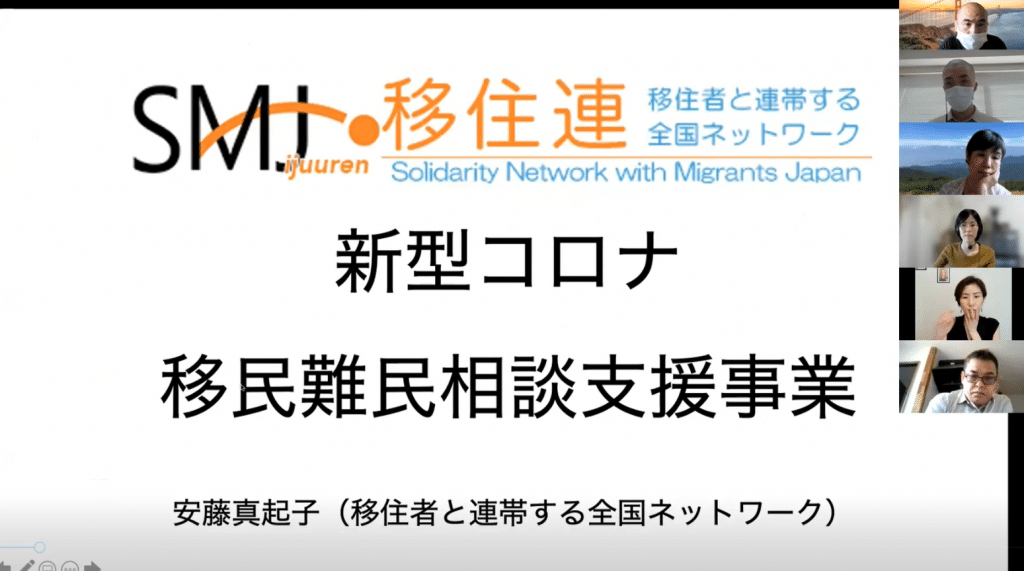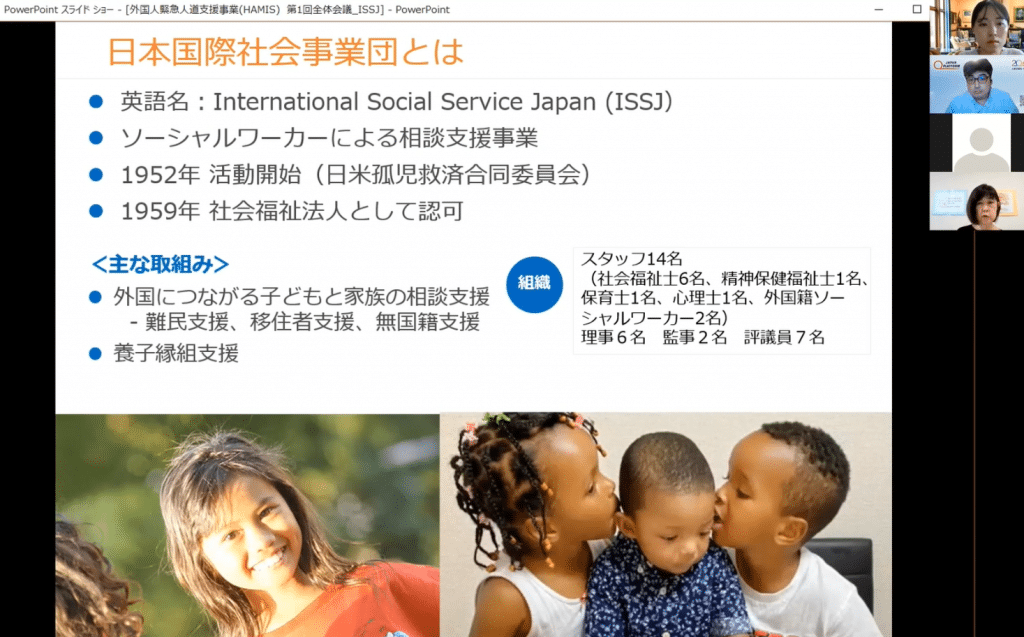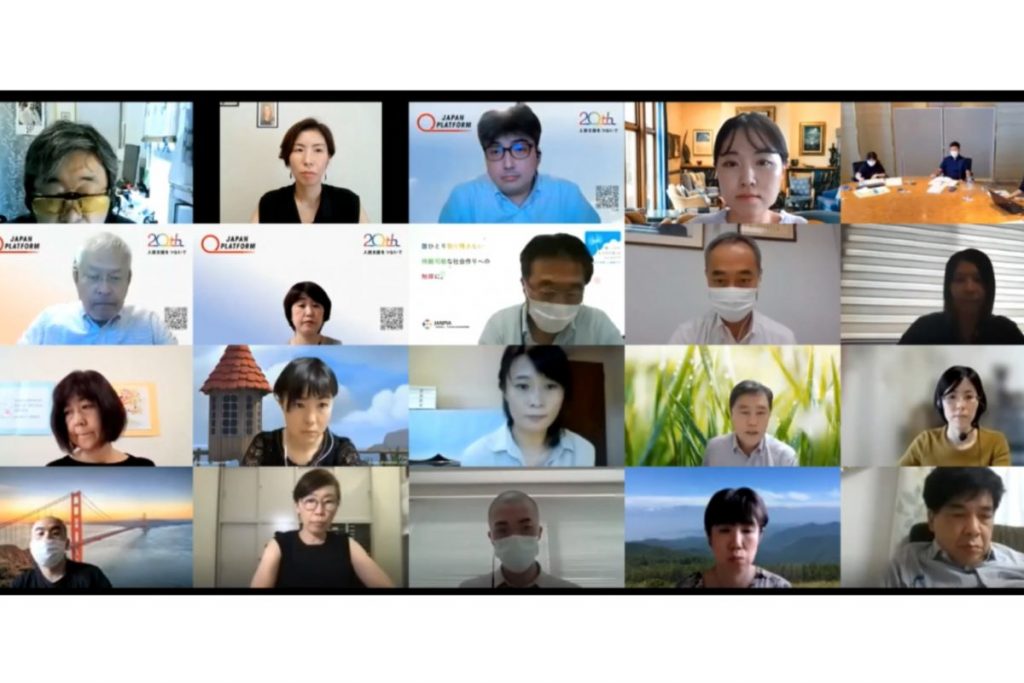The first general meeting for the Humanitarian Aid to Marginalized Immigrants Project (HAMIS), an initiative of JCIE and the Japan Platform (JPF), brought together 25 representatives from eight organizations that had been selected to receive grants through the project. The meeting provided these organizations with an opportunity to exchange information, and to promote cooperation and collaboration in their work to support foreign residents living in Japan.
Toshihiro Menju, managing director and chief program officer of JCIE/Japan, opened the meeting by explaining HAMIS’ overall goals of providing a safety net for foreign residents in Japan who have fallen into poverty amid the COVID-19 pandemic, supporting their independence, and developing and strengthening support systems across the country.
This was followed by presentations from representatives of each grantee organization, who introduced their projects and discussed the challenges that they have encountered in the field, as well as the resources they will need in the future. Although these organizations work on a variety of different issues, such as food assistance, shelter, interpretation and support in accessing services, medical support, and support for Japanese language study, etc., they reaffirmed their common goal to support the independence of foreign residents who are facing language barriers, insecure living conditions, or even living in poverty, to allow them to lead stable lives in Japan without becoming isolated.


Participants also took time to share some of the challenges they face, such as the continuing uncertainty for foreign residents after they are no longer receiving support, and the necessity to support those excluded from public services due to their residence status.
Participating organizations commented that they were inspired by learning about the activities of other organizations, and expressed interest in future cooperation and collaboration. They suggested that there is a need for further dialogue to develop concrete areas for cooperation and collaboration.

